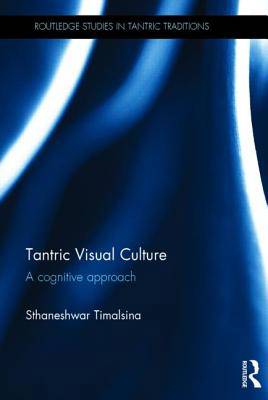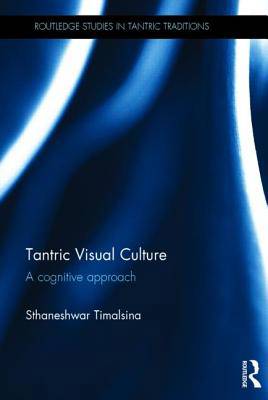
- Afhalen na 1 uur in een winkel met voorraad
- Gratis thuislevering in België vanaf € 30
- Ruim aanbod met 7 miljoen producten
- Afhalen na 1 uur in een winkel met voorraad
- Gratis thuislevering in België vanaf € 30
- Ruim aanbod met 7 miljoen producten
Omschrijving
Indian culture relies greatly on visual expression, and this book uses both classical Indian and contemporary Western philosophies and current studies on cognitive sciences, and applies them to contextualize Tantric visual culture.
The work selects aspects of Tantric language and the practice of visualization, with the central premise to engage cognitive theories while studying images. It utilizes the contemporary theories of metaphor and cognitive blend, the theory of metonymy, and a holographic theory of epistemology with a focus on concept formation and its application to the study of myths and images. In addition, it applies the classical aesthetic theory of rasa to unravel the meaning of opaque images. This philosophical and cognitive analysis allows materials from Indian culture to be understood in a new light, while engaging contemporary theories of cognitive science and semantics. The book demonstrates how the domains of meaning and philosophy can be addressed within any culture without reducing their intrinsic cultural significance.
By addressing these key aspects of Tantric traditions through this approach, this book initiates a much-needed dialogue between Indian and Western theories, while encouraging introspection within the Indic traditions themselves. It will be of interest to those studying and researching Religion, Philosophy and South Asian Culture.
Specificaties
Betrokkenen
- Auteur(s):
- Uitgeverij:
Inhoud
- Aantal bladzijden:
- 190
- Taal:
- Engels
- Reeks:
Eigenschappen
- Productcode (EAN):
- 9781138812840
- Verschijningsdatum:
- 3/02/2015
- Uitvoering:
- Hardcover
- Formaat:
- Genaaid
- Afmetingen:
- 157 mm x 234 mm
- Gewicht:
- 430 g

Alleen bij Standaard Boekhandel
Beoordelingen
We publiceren alleen reviews die voldoen aan de voorwaarden voor reviews. Bekijk onze voorwaarden voor reviews.











